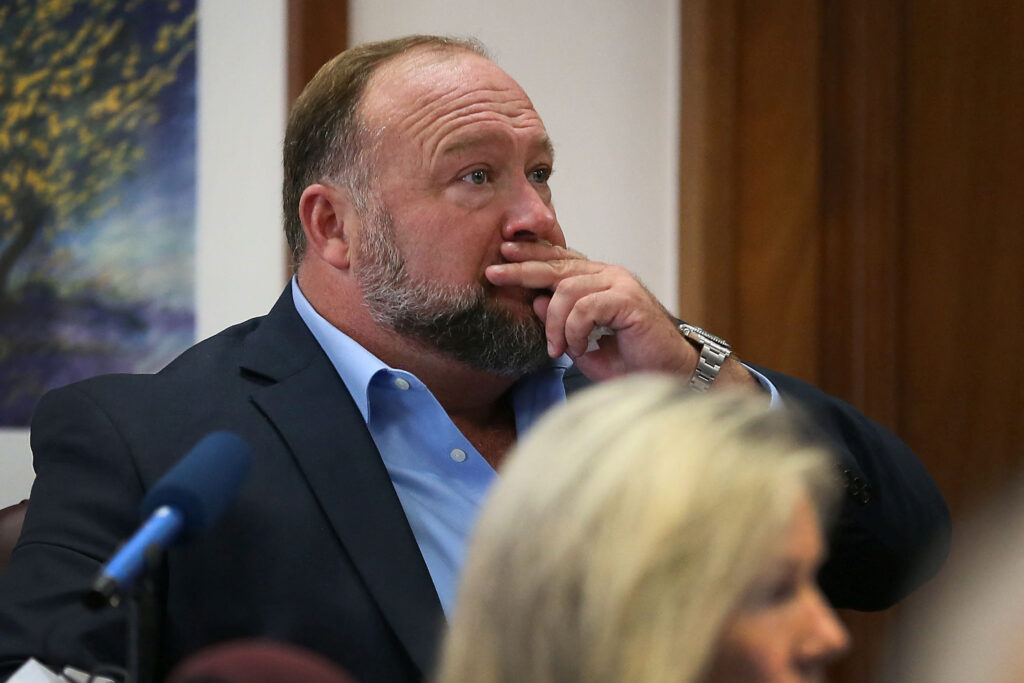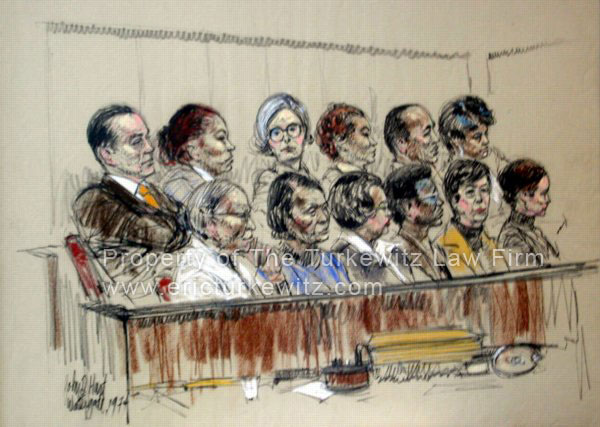
Some trials have simple legal questions. Some have complex ones. And then there’s the Alex Jones defamation trial winding up in Austin, TX, regarding his claims that the Sandy Hook massacre was a hoax. He’s been sued by parents of the kids.
Bar exams are an exercise in issue spotting. Issue determination is nice, but you can’t determine an issue unless you first recognize it is one. And Alex Jones, it seems, is a one-man bar exam with the explosion of issues surrounding this lawsuit. Some of the questions below may be easy; some not.
Were his statements about the massacre protected opinions or assertions of fact? If fact, were they reliably sourced? If defamatory, what standard would be used? Were the parents public figures?
Does the statute of limitations preclude suing on the statements? If some statements were made before after a statutory deadline lapsed, and related ones that are within the statute of limitations, can all of them be used in the suit or only the recent ones?
Was the judge correct in granting a default judgment in favor of the plaintiffs due to the failure by Jones to turn over discovery?
If there is a default judgment against Jones, to what extent can he still claim his statements were reliably sourced? If the plaintiff uses the poor sourcing of statements against Jones in pursuit of punitive damages, can Jones use the same statements in defense?
When Jones’ counsel inadvertently turned over the entire contents of Jones’ cell phone two weeks ago, was there an obligation by plaintiff’s counsel to alert Jones that there was privileged information on it? Did defense counsel properly object that the “oops discovery” should not be viewed when he emailed “please disregard”?
Did defense counsel commit legal malpractice in turning over the data? All of it or some of it? Does it depend on when he obtained it? Did he commit malpractice in failing to “snap-back” the privileged information within 10 days under TX procedural law? Can he snap back the non-privileged, yet irrelevant, parts? Did he commit malpractice in failing to object when some of it was used at trial? Could any of this be a proximate cause of injury to Alex Jones?
What happens to material on the phone that is not protected by a privilege, but is also wholly irrelevant to this case? Can the January 6th Committee obtain copies of inadvertently released “intimate messages” between Jones and Roger Stone?
Was any of Jones’ testimony perjury? Will the judge refer the matter to the DA? Will she level a contempt citation? If so, would it be redundant of any civil penalty that may come in the form of punitive damages?
When some of the information was used during trial, and Jones’ counsel failed to object, did Jones lose his right to appeal that particular issue?
When the judge found that plaintiff’s counsel acted properly by waiting 10 days under TX procedural law before using it, did that mean unrestricted use? Can he share any of it with others?
If some of the contents of the phone should have been previously disclosed, but weren’t, is there any additional sanction to levy against Jones on top of the default judgment against him?
When did defense counsel obtain the contents of the phone and what representation did he make to opposing counsel and the court about it? Could that subject counsel to a sanction on top of the default judgment sanction against the client? If so, will it come from the judge or a disciplinary committee?
Since some of the inadvertently disclosed material contained medical records for other Sandy Hook parents that are not involved in this suit, was there an ethical violation in defense counsel turning them over and then not properly retrieving them? Is it an ethical violation if the attorney was simply negligent in following procedure?
If the records were subject to a patient-doctor privilege, how did Jones’ counsel get them? Who sent them to Jones’s counsel? Was a confidentiality provision in another lawsuit violated? Or if the release came from a medical provider, a HIPAA violation?
What are the ramifications for the person that sent them? Is there a private right of action for the release of the privileged information? If so, would it fall under Texas law or Connecticut law, or the law of some other state where the records may have been conveyed from? Does HIPAA have a private right of action if errantly sent from a health provider?
What effect will the filing for bankruptcy by a Jones entity play in any verdict?
If the jury reaches a punitive damages verdict, what are the limits to it? Will it be state law or federal law that will be used to determine the limits? If federal law, how will the court apply the confusing determination in State Farm v. Campbell? Will the court use a ratio of 4:1 punitive:compensatory? A ratio of 9:1? The “no rigid benchmarks” standard? A ratio of 100:1?
How many other issues are there? And how many more are to come?




